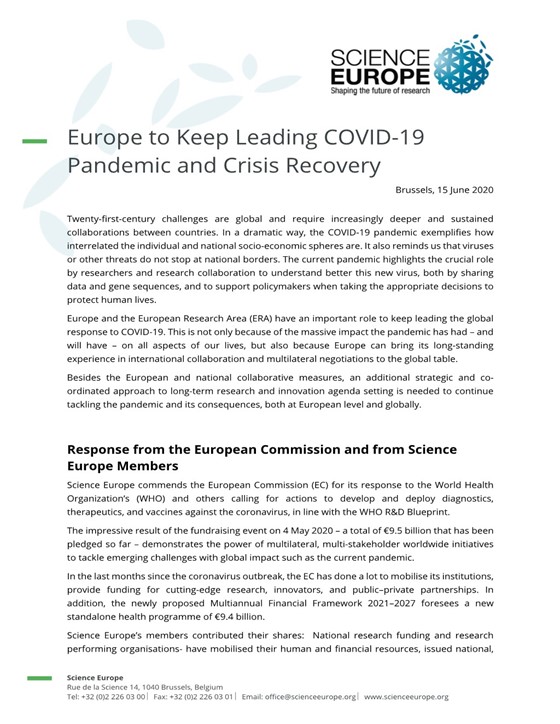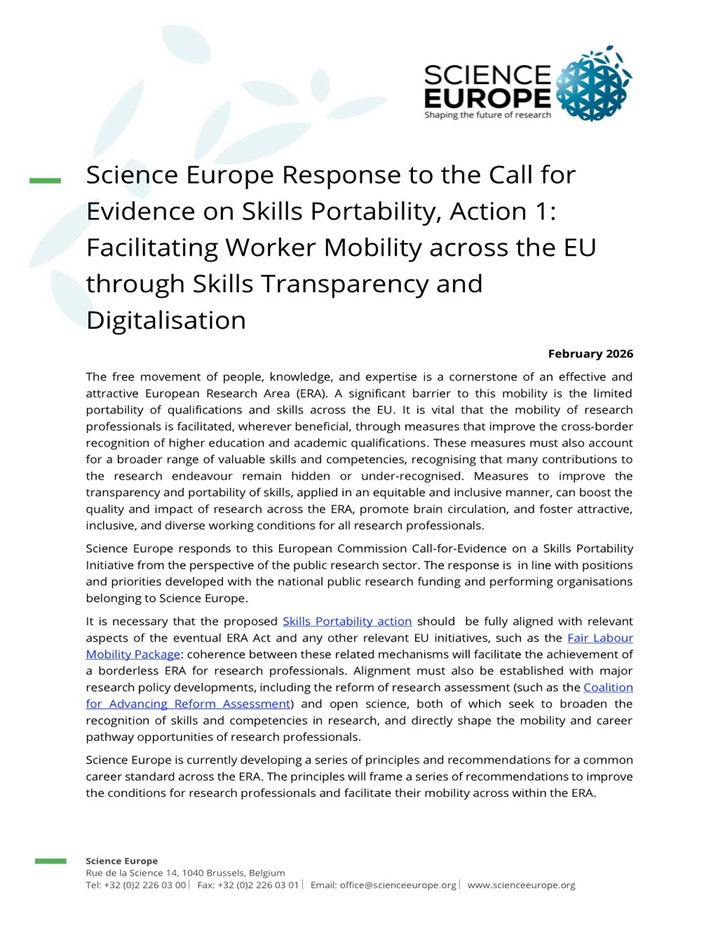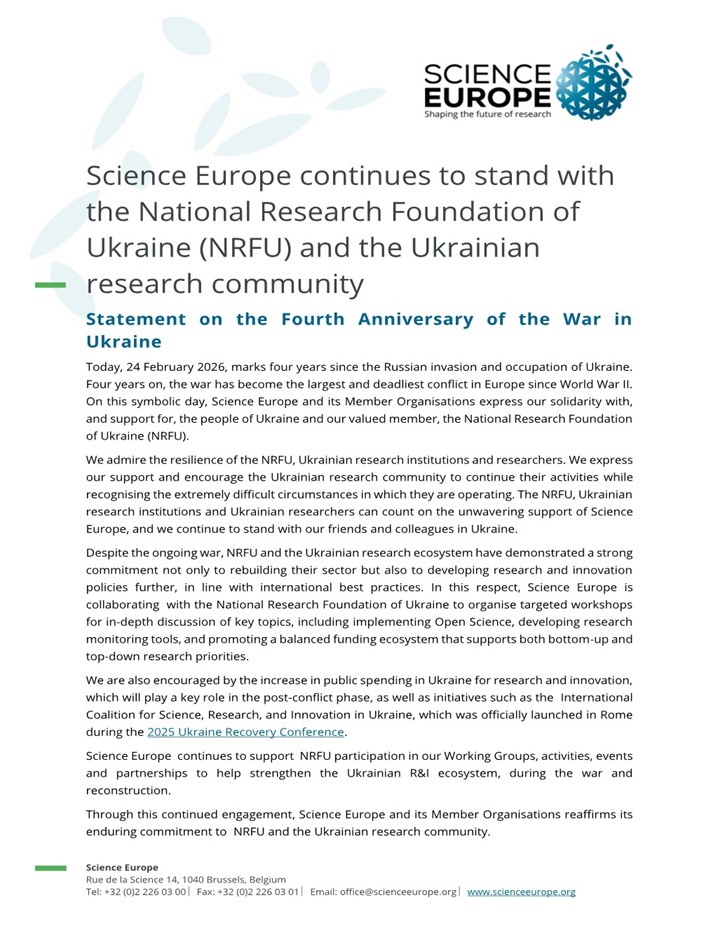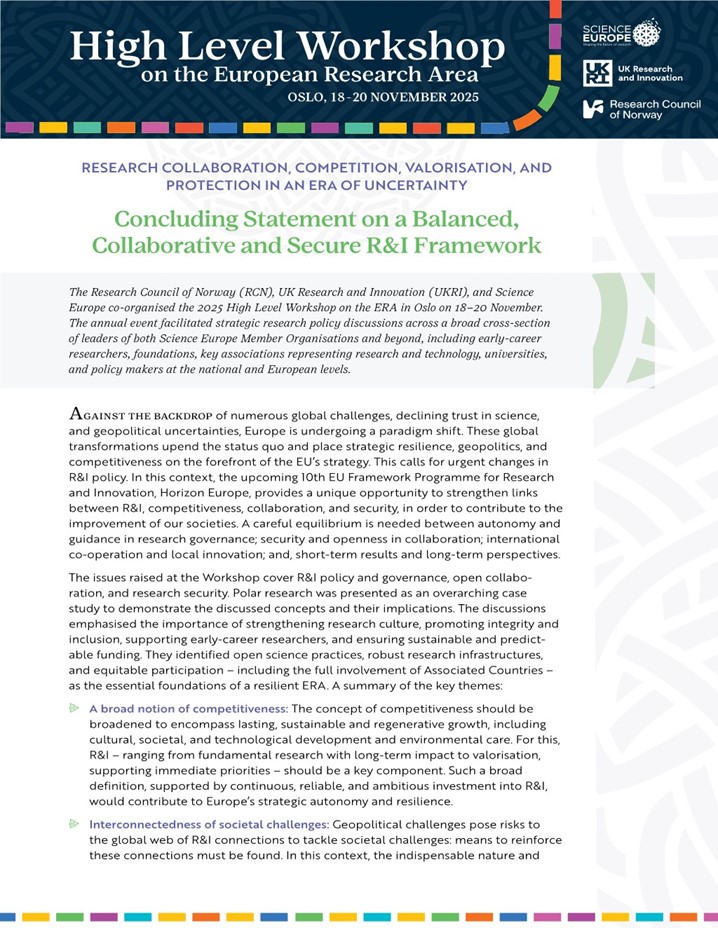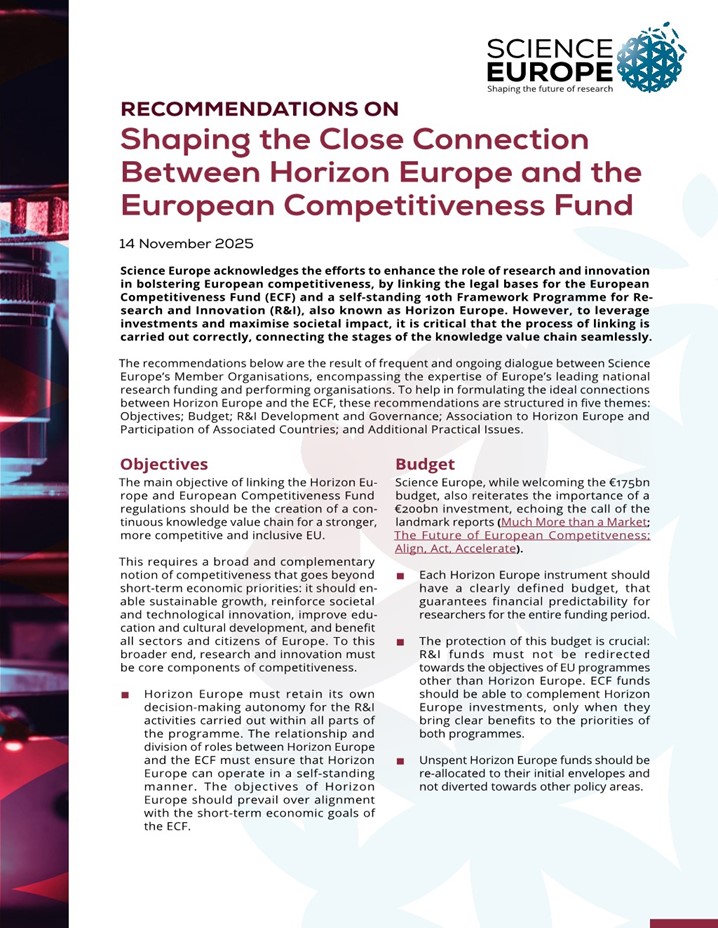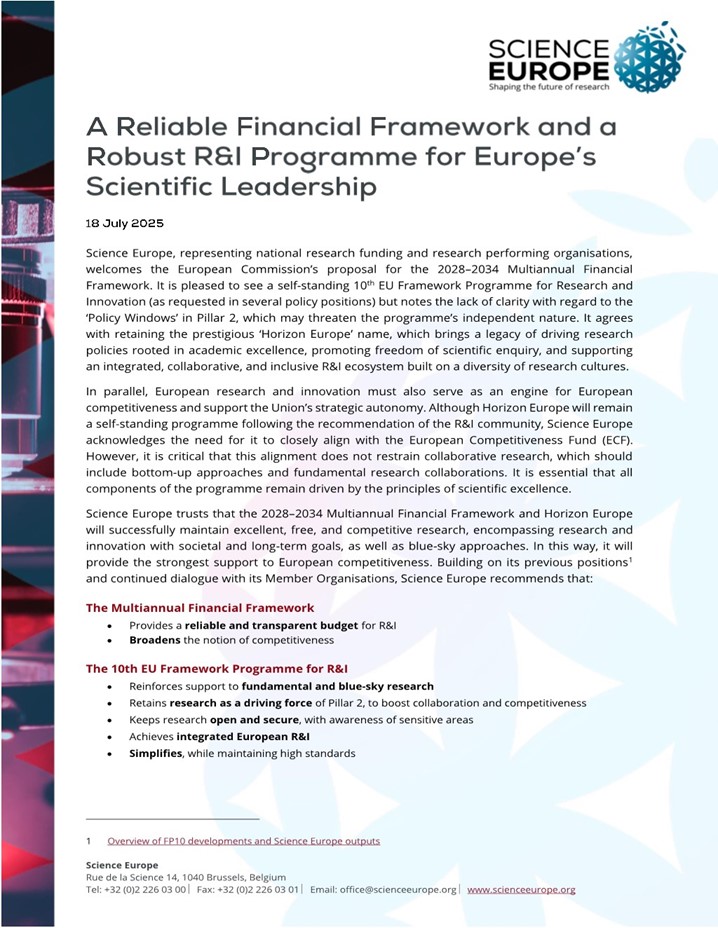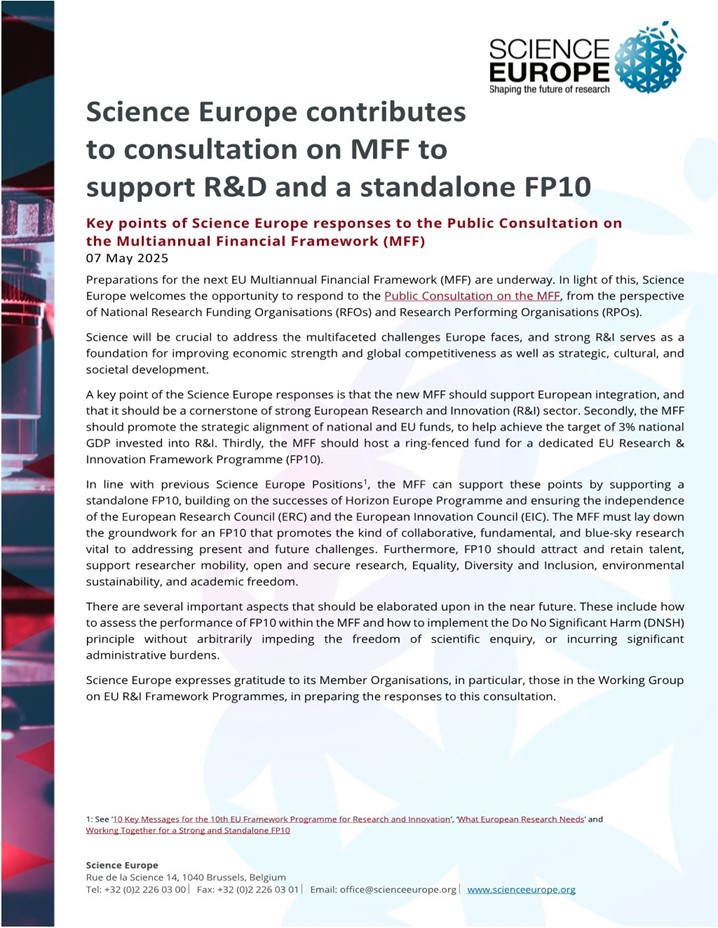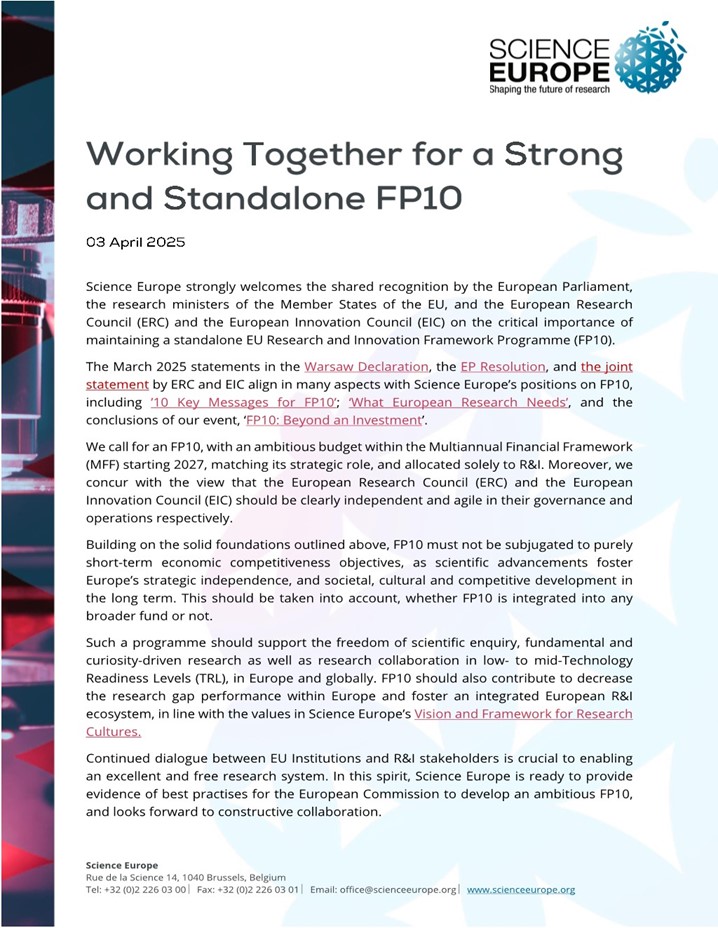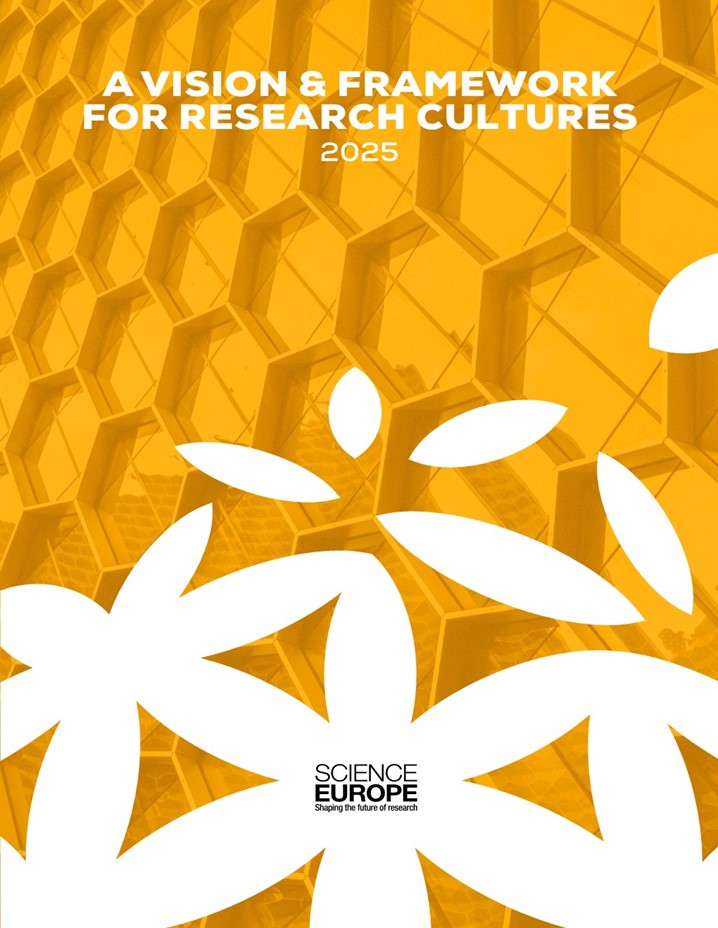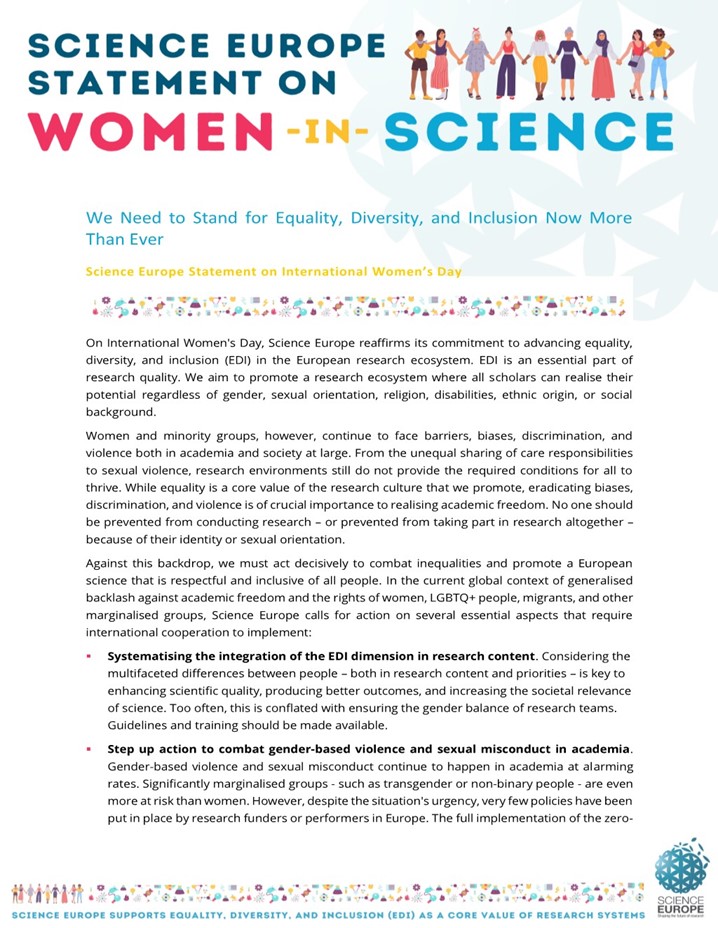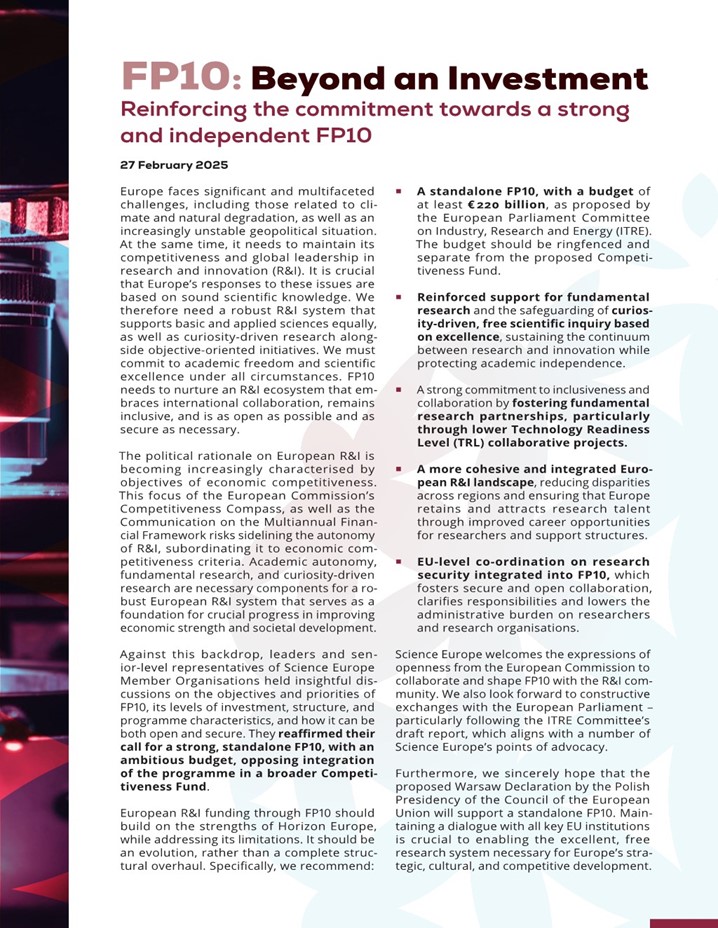Member-only content is available on this page. Please log in to view this content.
- Download
-
Share on
Europe to Keep Leading COVID-19 Pandemic and Crisis Recovery
Science Europe encourages EU Member States and Associated Countries to keep leading European and global projects to tackle the medical, social, and economic challenges brought on by COVID-19.
Science Europe Members Organisations can contribute with their expertise and experience to build the necessary collaborative approaches within Europe and across the world.
Download resourceRelated content
Science Europe Response to the Call for Evidence on the Skills Portability Initiative
Science Europe has submitted its response to the European Commission’s Call for Evidence on the Skills Portability Initiative, outlining how better recognition and portability of research skills can strengthen mobility and careers across the European Research Area.
Science Europe Statement on the 4th Anniversary of the War in Ukraine
On the fourth anniversary of the war in Ukraine, Science Europe and its Member Organisations reaffirm their solidarity with the National Research Foundation of Ukraine (NRFU), and the wider Ukrainian research community.
High Level Workshop Concluding Statement on a Balanced, Collaborative and Secure R&I Framework
This statement presents the overall conclusions from the 2025 High Level Workshop, co-organised by the Research Council of Norway (RCN), UK Research and Innovation (UKRI), and Science Europe on 18–20 November in Oslo, Norway.
It highlights the shared commitment to strengthening a resilient, collaborative, and secure European R&I ecosystem, and outlines the key themes that emerged from the discussions.
Recommendations on Shaping the Close Connection Between Horizon Europe and the European Competitiveness Fund
Science Europe has published a new position statement on how the next EU Framework Programme for Research and Innovation should connect with the European Competitiveness Fund (ECF) to strengthen Europe’s knowledge base and long-term competitiveness,focusing on on five key themes: Objectives; Budget; R&I Development and Governance; Association to Horizon Europe and Participation of Associated Countries; and Additional Practical Issues.
A Reliable Financial Framework and a Robust R&I Programme for Europe’s Scientific Leadership
Science Europe's initial response to the European Commission's proposals for the next EU budget and new Horizon Europe, including a set of recommendations. While the proposals provide a significant budget increase and the Framework Programme remains self-standing, further clarification on its relation to the Competitiveness Fund is needed.
Response to Consultation on MFF to support R&D and a standalone FP10
Science Europe has responded to the European Commission’s public consultation on the next Multiannual Financial Framework. It focuses on establishing a strong and ambitious MFF that strategically aligns national and EU research funding, and includes a ringfenced budget for FP10.
Working Together for a Strong and Standalone FP10
Science Europe proudly presents its statement, 'Working Together for a Strong and Standalone FP10', reaffirming the vital role of a dedicated EU Research and Innovation Framework Programme. Building on shared commitments from the European Parliament, EU research ministers, and the ERC and EIC, we advocate for an ambitious FP10 within the 2027 Multiannual Financial Framework. This programme must prioritise scientific freedom, curiosity-driven research, and a robust, independent R&I ecosystem to secure Europe’s long-term strategic, societal, and competitive future.
A Vision & Framework for Research Cultures
Science Europe presents ‘A Vision and Framework for Research Cultures’. It synthesises our recent work across numerous policy topics focussing them on the shared objective of R&I systems to advance knowledge and enable the quality and impact of research.
Science Europe Statement on International Women's Day
On International Women's Day, Science Europe reaffirms its commitment to advancing equality, diversity, and inclusion (EDI) in the European research ecosystem as an essential part of research quality. We aim to promote a research ecosystem where all scholars can realise their potential regardless of gender, sexual orientation, religion, disabilities, ethnic origin, or social background.
FP10: Beyond an Investment - Concluding Statement
Leaders and senior-level representatives of Science Europe Member Organisations met in Brussels on 18 and 19 February to discuss Science Europe’s priorities for the upcoming 10th EU Framework Programme for Research and Innovation (FP10). The recommendations in the landmark reports by Enrico Letta, Mario Draghi, and the Expert Group on the Interim Evaluation of Horizon Europe led by Manuel Heitor were taken into account. The event was kindly hosted by the Research Foundation Flanders (FWO) in Brussels, with the Commissioner for Startups, Research and Innovation Ekaterina Zaharieva participating in the opening session.
This statement presents the conclusions of these discussions.

